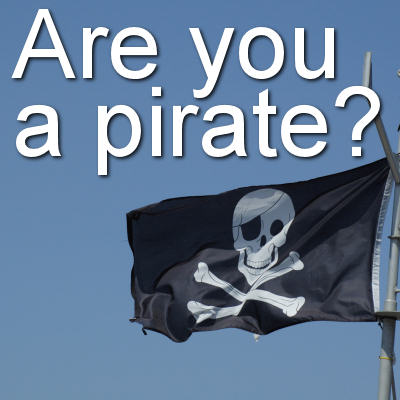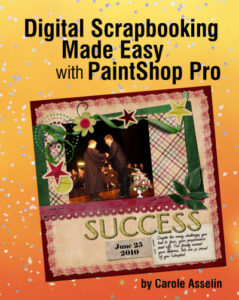Ever since the arrival of digital content, we have started hearing about piracy. People have copied and shared songs, movies, games, and programs. A formal definition of piracy would be "the unauthorized use or reproduction of another's work".
In the digital world, it basically means "sharing what you should not share".
 I bought it, I can share it
I bought it, I can share it
If you bought a box of chocolate and decided to share it with colleagues, you can absolutely do it. That box only includes 20 chocolates and once they are eaten, that is it; you have to buy your next box. However, in the digital world, once you purchase something, you "can" technically share it yet, you would still retain it on your computer. If you sent a photo to Aunt Lucy through an email, you still have it, so in fact, you duplicated it.
Even though you have the technical ability to duplicate, copy and share digital goods like music, movies, programs and games, it is illegal. Period.
They are just digital, they don't cost anyone anything to make
Although "digital" products might not cost anything to "manufacture", like paper books, or DVD cases, the creator still had to spend time creating them. In addition, there are cost in making those supplies available to you, costs like hosting, equipment (yes, they have to have a computer and programs too), and various services like emails too. The individual digital bits might not cost much to manufacture, but it takes the creator as long as the artist painting, or the writer to write and as much to let you purchase it. For some, it is their job.
 It was free anyways
It was free anyways
In the digital graphic world, it is common to find free stuff online. Many sites will list blogs, stores or Facebook pages where you can get free goodies. The fact that they are free to download, still does not mean that YOU can distribute them freely around. If a designer offers free supplies it might be because they want to increase traffic to their site. By sharing on your side, you are undermining that person's goal. And what if the designer "just wanted to give something free"? It is that person's privilege, and we should respect that. If your friend would like to get those free supplies, just send them to that site to download themselves.
I am not using it anymore
If you have a book or any other object that you no longer use, you can surely give it away to someone. Can't you do the same with digital products? It could certainly be logical reasoning except for the fact that digital products are different from tangible ones: once you "give it" to someone else, you can still have it. When YOU purchased the digital product or just downloaded it, it means that YOU visited a particular site; if you give it away to your sister-in-law, she will benefit from it without visiting the site. If it is not a loss of income per se, it is a loss of traffic for the company or the designer.
I have a limited income
If you have a limited budget and can't afford a $500 program, you can look for alternatives. Most of the time, there are some. But can you really argue that your budget is too limited to pay $5 for a digital kit that you can reuse over and over again? It might be a matter of priorities: maybe you don't want to put that $5 toward a kit, while you prefer to spend it on a fast-food meal. That is your choice, but it is still not a reason to illegally obtain digital supplies.
Of course, there are dozens of other reasons one can try to use to justify illegally sharing supplies. But that does not make it right. Maybe you didn't know. If you are new to digital graphics and digital scrapbooking, that is possible. But you know now: if you purchased a scrapbook kit, a set of brushes, or templates, it does not give you permission to share it with your friends, or your sister-in-law.
Remember that designers who create those supplies do work and might spend many hours before offering them for sale. Even if they are only "digital" supplies, it does not make them less valuable.
Let's just hope it helps you clarify what piracy is and how you can avoid it. Purchase those supplies, download them, enjoy them. Just don't SHARE them.
For more information on TOU (Terms of Use), check out this article.














2 thoughts on “Are you a pirate?”
Thank you for this Cassel. This is why it is important to read terms of use(TOU)even if supplies are purported to be free they still have them. My understanding is though, if you create an original image even if using a tut or a script that allows you to design the image outcome(this why I love your scripts Cassel), or something you have drawn or painted from imagination etc then it is yours to do what you will with it. Taking somebody else’s work and making minor changes like re colouring or adding something does not transfer the ownership of that original work, it is still theirs. Copyright is such a minefield but is very important to get right. SO, my rule of thumb is, if I didn’t make it, its not mine.
Also, giving credit is good practice and lets someone know where you got the idea etc from. gracious, I feel like I have been on a big soap box, I’ll get off now.
You are correct. TOU is important. And this has been addressed recently in another post. I think that a lot of beginners (and i was one too) don’t know the rules about sharing or not sharing. Some people honestly thought that once they bought some digital supplies, they were free to distribute them wherever they want. I think it just needed to be clarified for those newcomers. And then, we can consider the TOUs also.